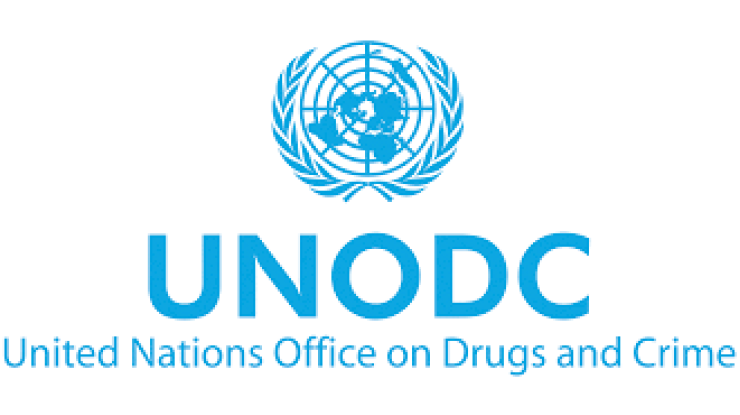UNODC
- Thu, 30 March 2023

The United Nations Office on Drugs and Crime (UNODC) is a global leader in the fight against illicit drugs, transnational organized crime, terrorism and corruption, and is the guardian of most of the related conventions, particularly:
- The United Nations Convention against Transnational Organized Crime and its three protocols (against trafficking in persons, smuggling of migrants and trafficking in firearms)
- The United Nations Convention against Corruption
- The international drug control conventions
UNODC was established in 1997 as a result of the merging of the United Nations Centre for International Crime Prevention and the United Nations International Drug Control Programme. It was established by the Secretary-General of the United Nations to enable the Organization to focus and enhance its capacity to address the interrelated issues of drug control, crime and international terrorism in all its forms.
In the same year, UNODC Southern Africa was formed and now covers 11 countries in the region, namely: Angola, Botswana, the Democratic Republic of the Congo, Lesotho, Malawi, Mozambique, Namibia, South Africa, Swaziland, Zambia and Zimbabwe.
The funding of UNODC's programmes is fully dependent on the continued support of the donor community.
Strategic Objectives
UNODC is committed to achieving security and justice for all by making the world safer from drugs, crime and terrorism. To assist countries in this goal, UNODC Southern Africa's work is structured around six key objectives:
1. Strengthening the legislative and judicial capacity of Southern African countries to ratify and implement international conventions and instruments on drug control, organized crime, corruption, terrorism and money-laundering
2. Assisting Southern African countries in reducing drug trafficking and in controlling precursor chemicals
3. Enhancing the capacity of Government institutions and civil society organizations in the Southern African region to prevent drug use and the spread of related infections, including HIV, among youth and other vulnerable populations, particularly in prison settings
4. Enhancing the capacity of Government institutions and civil society organizations in the Southern African region to counter trafficking in persons and smuggling of migrants
5. Creating awareness about and reducing the incidence of domestic violence in Southern Africa in cooperation with civil society and Governments
6. Promoting victim empowerment by improving coordination, building capacity and strengthening relations between Governments and civil society in order to improve services to victims, especially women and children.
UNODC's Action against Corruption and Economic Crime
Corruption is a complex social, political and economic phenomenon that affects all countries. Corruption undermines democratic institutions, slows economic development and contributes to governmental instability. Corruption attacks the foundation of democratic institutions by distorting electoral processes, perverting the rule of law and creating bureaucratic quagmires whose only reason for existing is the soliciting of bribes. Economic development is stunted because foreign direct investment is discouraged and small businesses within the country often find it impossible to overcome the "start-up costs" required because of corruption.
The United Nations Convention against Corruption is the only legally binding universal anti-corruption instrument. The Convention's far-reaching approach and the mandatory character of many of its provisions make it a unique tool for developing a comprehensive response to a global problem.
The Conference of the States Parties (COSP) is the main policy-making body of the Convention, supporting States parties and signatories in their implementation of the Convention and giving policy guidance to UNODC to develop and implement anti-corruption activities. The actual implementation of the Convention into domestic law by States parties is evaluated through a unique peer-review process, the Implementation Review Mechanism.
To support States parties' efforts to fully implement the Convention, UNODC delivers technical assistance in various corruption-related thematic areas, such as prevention, education, asset recovery, integrity in the criminal justice system, etc.
source==> United Nations Office on Drugs and Crime





-80x80.png)

-80x80.png)

